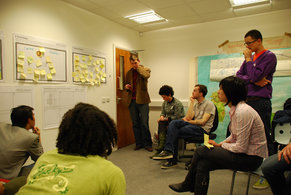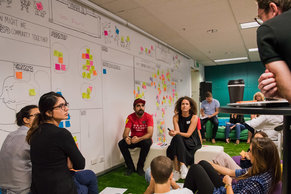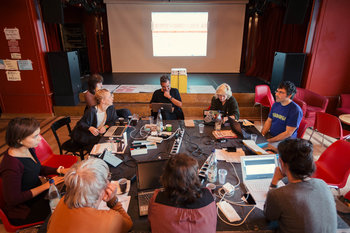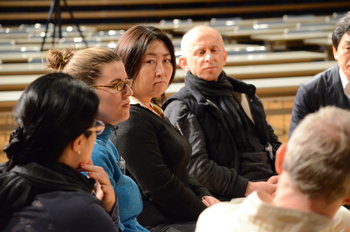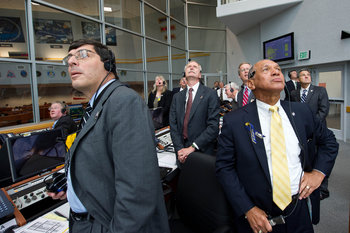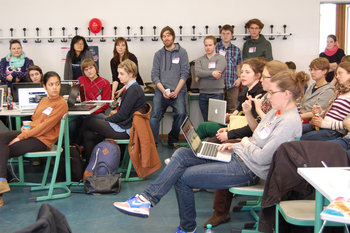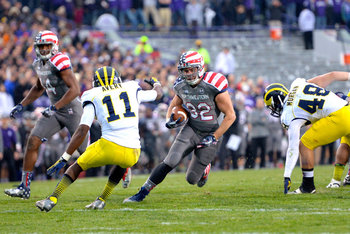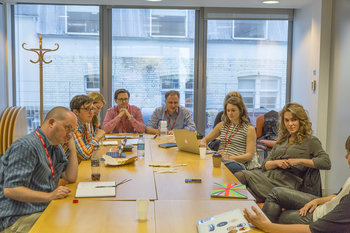
Ability to attract top talent | Accountability is enforced |
Ad-hoc processes | Agents of change are rewarded |
Agents of change are sidelined | Ample opportunities for advancement |
Attention to detail | Attention to health and safety |
Authoritarian culture - processes and rules used to create power | Big strategies without testing ideas first |
Blame culture | Boreout - employees are bored with work |
Bureaucracy and red tape | Burnout and stress |
Candor | Celebration of successes |
Civility | Clear communication |
Collectivist culture | Community involvement |
Competition is avoided | Competition is embraced |
Complaining culture | Compliance is achieved and expected |
Conflicts of interest | Constructive criticism |
Continuous improvement - often an excuse to move slowly | Corporate narcissism |
Creative tension - a health degree of disagreement and lively debate | Cronyism |
Customer detachment - employee disconnect with customer needs and context of use | Customer empathy - employees feel what the customer needs |
Customer is always right - employees take customers at their word | Customer satisfaction is prioritized |
Decision authority - clear authority and accountability for decisions | Decisions are made in the interests of customers |
Decisions are made in the interests of employees | Decisions are made in the interests of executives |
Decisions are made in the interests of investors | Decisions look at data |
Defeatism - a failure of duty due to the belief that strategy is doomed | Directionless and inefficient meetings and communications |
Disagree and commit - a time for input and a time to support decisions that are made | Diversity of perspectives - employees think in different ways and often disagree |
Embrace of reasonable change | Embrace of trends and change for the sake of change |
Empathy and compassion | Empire building - a lack of cooperation between teams |
Employee engagement | Employee ownership and responsibility |
Employee well-being is prioritized | Employees are hostile to management |
Employees are unaware of strategy | Employees believe the organization is good for people and planet |
Employees evaluated by perceived effort as opposed to results | Employees given enough authority and resources to achieve their goals |
Employees not monitored much and are evaluated according to performance alone | Employees think strategy is flawed |
Entrepreneurial spirit | Ethical behavior |
Excessive middle management | Excessive teamwork - over-socialization of processes, work and decisions |
Excuse making | Failure fatigue - employees expect projects to fail |
Failure is ignored | Failure is recognized and accepted with a process of learning and recovery |
Failure is recognized and punished | Fair performance reviews |
Fear of criticism - employees hold back on creative ideas | Flat organizational structure |
Flexible work arrangements | Frequent negative feedback from customers |
Goal setting and clear priorities | Grit and resilience |
Group harmony - employees avoid conflict such as pushing for creative ideas | Health and safety is prioritized |
Heavy monitoring of employees | High expectations for performance |
High staff turnover | High stress levels |
Honor culture - employees try to avoid showing weakness | Idealistic culture |
Inadequate compensation | Inadequate resources |
Inadequate training and support | Incentives for performance |
Incentivization of least effort and least risk | Incentivization of risk-taking |
Inclusiveness | Individualistic culture |
Initiative gets respect | Intellectual bravery - employees will offer creative ideas |
Intensity of office politics | Interdepartmental cooperation thrives |
Lack of honesty | Lack of organizational confidence |
Lack of organizational mission, purpose and vision | Limited opportunities for career growth |
Listening habits | Long hours expected |
Long-term is prioritized | Low performance is managed |
Low throughput | Management hostile to employees |
Management is aloof | Management is hands-on |
Mature processes and internal controls | Mature processes that are also flexible |
Micromanagement | Mismanagement |
Mutual respect | Negative office politics |
Neglect of employee well-being | One-upmanship |
Overcommunication | Passive aggressive behaviors |
Pessimistic culture | Peter principle - employees are promoted until they a level where they are less than competent |
Poor communication | Poor customer service |
Poor leadership | Poor supervision |
Poor work-life balance | Poor working conditions |
Poorly defined roles and responsibilities | Pragmatic culture |
Prioritization of individual productivity | Problems are ignored |
Problems are only solved when they directly impact revenue | Problems are solved |
Professionalism | Prototyping and experiments are common |
Quality is prioritized | Raising the bar - leading an industry as opposed to following |
Regular feedback | Remaining reachable on holidays is expected |
Resistance to change | Respect for individual differences |
Respect for the customer | Revenue is prioritized |
Rewards and recognition tied to actual value creation | Risks are managed |
Secrecy | Sense of entitlement |
Sense of purpose | Social detachment - employees distrust each other and don't form friendships |
Social interaction - employees have friends at work | Support for risk-taking |
Teamwork | Think big culture |
Time habits | Time-to-market is prioritized |
Timely and reasonable decision making | Toxic positivity |
Transparency | Trust |
Unclear assumptions, expectations, goals and objectives | Unfair promotion practices |
Unfriendly and unsupportive environment | Work ethic |

